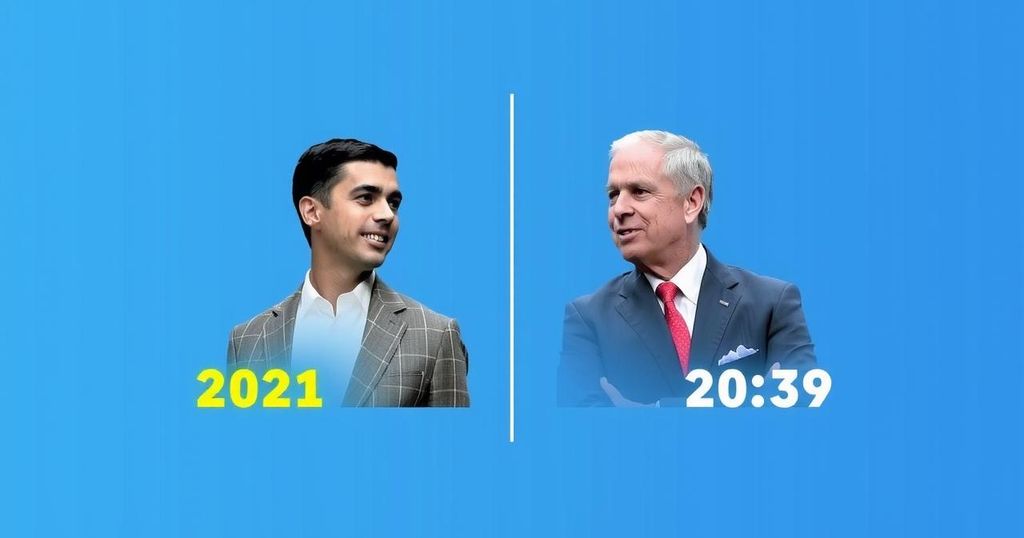Uruguay’s Presidential Election: A Tight Race for the Next Leader

Uruguay is set for a close presidential run-off election, with Álvaro Delgado of the National Party competing against Yamandú Orsi of the leftist Broad Front coalition. The first round saw Orsi earning 44% and Delgado 27% of the vote, but support from other conservative parties gives Delgado a potential edge. Polls suggest a tight race with significant voter indecision amid rising crime concerns and lackluster campaigns.
Uruguay is poised for a second round of presidential elections on Sunday, following a first round that failed to produce a decisive winner. Álvaro Delgado, representing the conservative National Party, faces off against Yamandú Orsi from the Broad Front coalition, which has traditionally embraced leftist and center-left policies. The first round saw Orsi’s coalition leading with 44 percent, while Delgado’s party garnered only 27 percent. However, support from other conservative factions has granted Delgado a competitive advantage in this increasingly contentious run-off.
The recent electoral climate marks a stark contrast to previous years, as both candidates engage in a close race characterized by voter indecision. Polls indicate nearly a dead heat, with approximately 10 percent of the electorate remaining undecided. Analysts attribute this uncertainty to the candidates’ uninspiring campaigns and their rare agreement on major policies, primarily revolving around economic matters such as taxes. Notably, the palpable sense of voter dissatisfaction seen in other countries does not seem to resonate within Uruguay’s political framework, prompting a different electoral atmosphere.
Moreover, both candidates are responding to the growing public concern regarding a surge in violent crime, which represents a pressing issue for Uruguayan society. The social context reflects a desire for leadership that can effectively navigate these challenges without resorting to divisive rhetoric or populist appeals. As Sunday approaches, the nation’s electorate is acutely aware that the future of governance may hinge on this tightly contested election.
The elections in Uruguay stem from a political transition that saw the Broad Front lose power in 2019 after a 15-year tenure, during which they implemented significant social reforms such as the legalization of abortion and same-sex marriage. The National Party, currently in power, alongside coalition partners, faced opposition in the recent first round of voting. The electoral outcome has resulted in a notable polarization within the electorate, reflected in uncertain voter preferences heading into the run-off vote.
In summary, Uruguay’s upcoming presidential election run-off encapsulates a critical moment for the nation, revealing intricate voter sentiment amidst a backdrop of political continuity and change. The campaign has unearthed noteworthy voter indecision, despite significant policy discussions, leading to an election devoid of extreme anti-establishment sentiments. As voters prepare to make their choices, the outcome may significantly influence Uruguay’s governance and its approach to pressing societal issues.
Original Source: www.scmp.com








